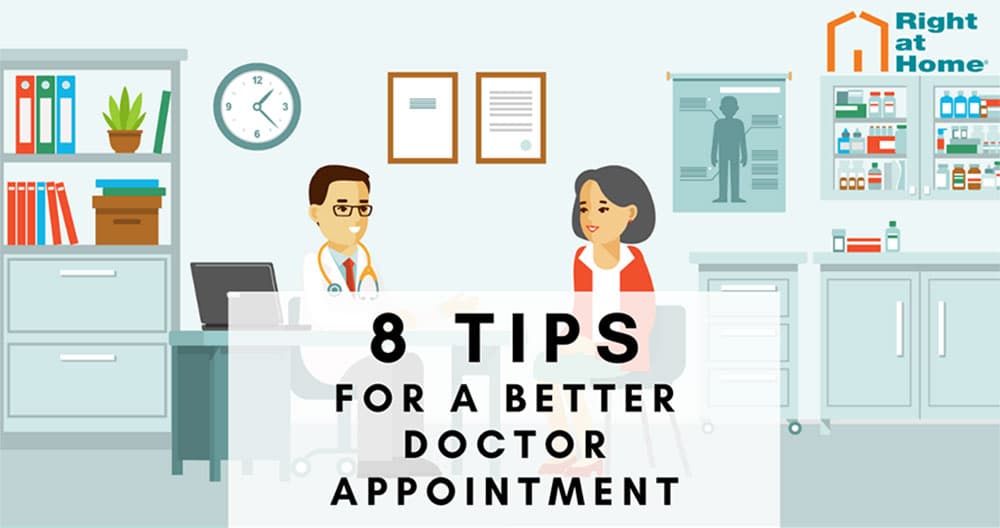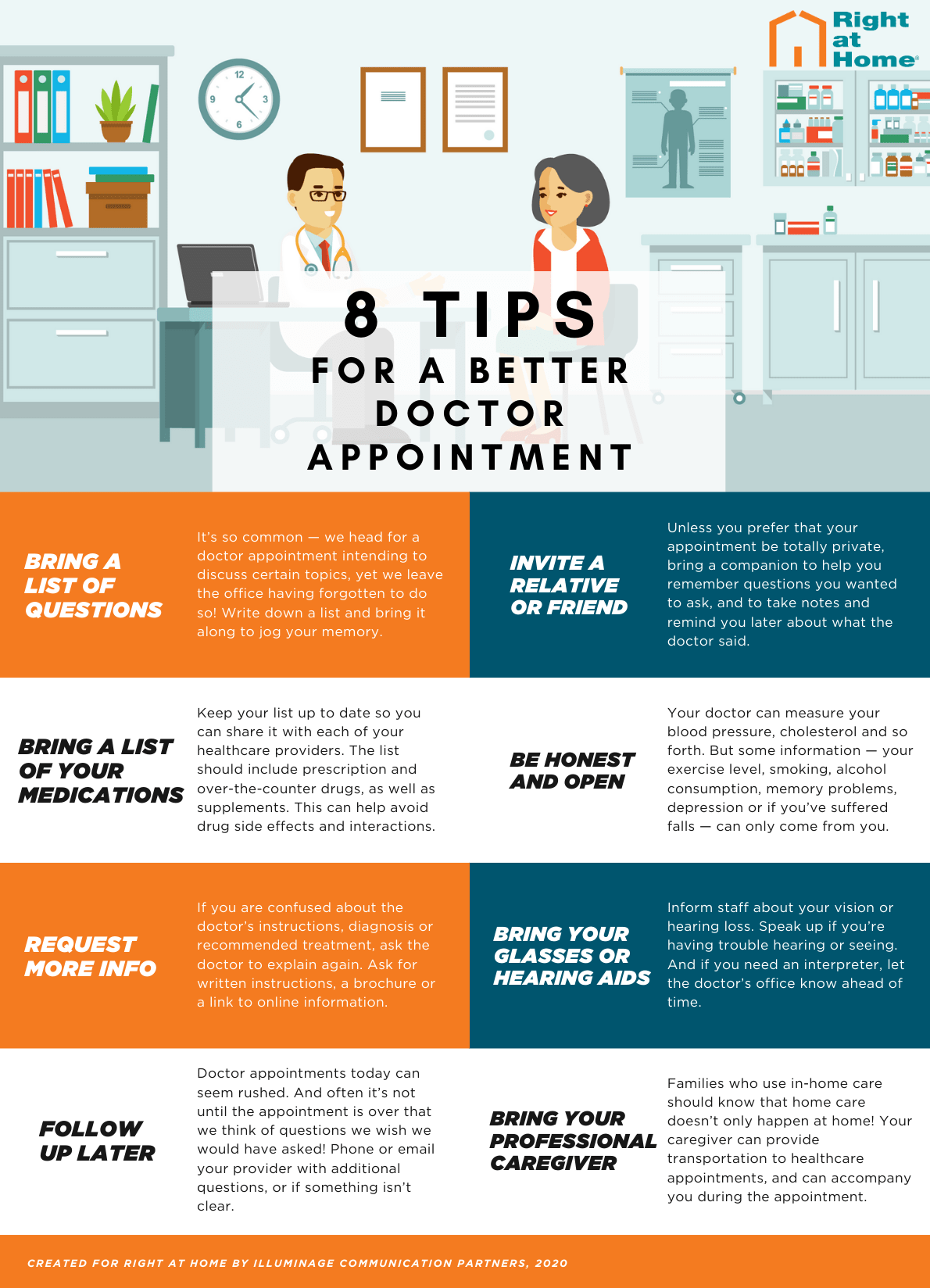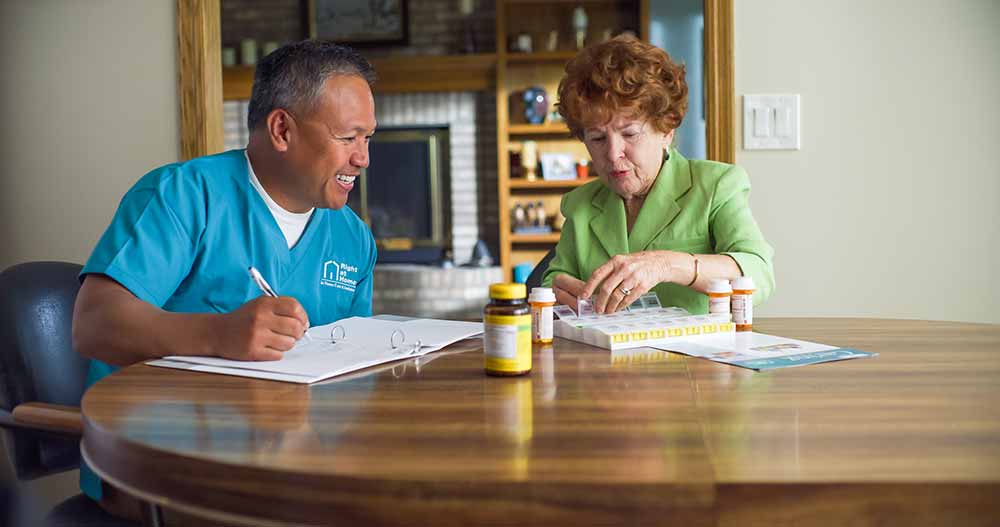

Eight Tips for a Better Doctor Appointment
In today’s fast-paced healthcare environment, physicians, patients and family caregivers are partners in care, working together to best manage health conditions and make decisions about treatments. Here are ways to make the most of a doctor visit. (Note: During the COVID-19 crisis, doctor offices and clinics are taking extra precautions to keep patients safe. Call ahead to find out if another person can accompany you to your appointment at this time.)

One of the above tips is to bring a list of your medications with you to your doctor appointment. To make this easier, you can create a list of all your prescribed and over-the-counter medications using Right at Home’s Medication List—just fill in the blanks on the one-page form.
Which screenings and immunizations are recommended for older adults? Find an overview in “Don’t Forget Preventive Care” in the Right at Home blog.
Tips for a Better Doctor Appointment
Bring a List of Questions
It's so common - we head for a doctor appointment intending to discuss certain topics, yet we leave the office having forgotten to do so! Write down a list and bring it along to jog your memory
Invite a Relative or Friend
Unless you prefer that your appointment be totally private, bring a companion to help you remember questions you wanted to ask, and to take notes and remind you later about what the doctor said.
Bring a List of Your Medications
Keep your list up to date so you can share it with each of your healthcare providers. The list should include prescription and over-the-counter drugs, as well as supplements. This can help avoid drug side effects and interactions.
Be Honest and Open
Your doctor can measure your blood pressure, cholesterol and so forth. But some information - your exercise level, smoking, alcohol consumption, memory problems. depression or if you've suffered falls - can only come from you.
Request More Info
If you are confused about the doctor's instructions, diagnosis or recommended treatment, ask the doctor to explain again. Ask for written instructions, a brochure or a link to online information.
Bring Your Glasses or Hearing Aids
Inform staff about your vision or hearing loss. Speak up if you're having trouble hearing or seeing. And if you need an interpreter, let the doctor's office know ahead of time.
Follow Up Later
Doctor appointments today can seem rushed. And often it's not until the appointment is over that we think of questions we wish we would have asked! Phone or email our provider with additional questions, or if something isn't clear.
Bring Your Professional Caregiver
Families who use in-home care should know that home care doesn't only happen at home! Your caregiver can provide transportation to healthcare appointments, and can accompany you during the appointment.







